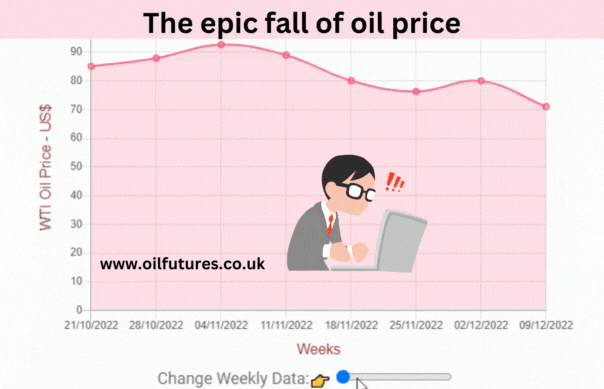The price of crude oil has been falling for weeks and the US crude stocks are no longer the crucial factor that determines its trend. Had it not been for the relatively high price of LNG, liquified natural gas, the fall of oil price would have been much steeper and more painful for the producers.
The price of oil price crossed the psychologically-sensitive $100 mark at the height of summer in the northern hemisphere while wreaking havoc in the global economy as a whole: the economies were tentatively recovering from the once-in-a-century pandemic; the inflation skyrocketed; collective productivity shrunk in major economic power houses due to high energy costs.
The outbreak of Ukraine war in February, meanwhile, left the decision makers dumbfounded as the room for political maneuvers got smaller and smaller, in proportion to the rising rhetoric - and counter-rhetoric - by the parties involved.
Since a major, global oil - and gas - producer is at the heart of the conflict, it goes without saying the direct impact of the war on the crude oil markets.
Despite the sanctions imposed on the country in question - and the obvious lack of supply from it - the oil price did not climb to a disastrous level. On the contrary, as we observe at present, the price went south, leaving the analysts and forecasters in a state of flux. In short, nobody saw this was coming.
It is blatantly obvious that neither the recently-imposed price cat at $60 nor the severe restriction on the imports of Russian fuels is failing to sustain the crude oil prices; they are on a downward trend, but not a downward spiral, thanks to high gas prices; random price hikes just stem from inflated sentiments, not reliable market trends.
In spite of the falling oil prices, the damage has already been inflicted on the major economies: in the UK, for instance, the trade unions are up in arms against the cost of living and demand double-digit pay rises, something that the government cannot afford to do; if they go on strike in the coming weeks as threatened, it will border on a general strike; in these circumstances, hitting energy companies with windfall taxes is tantamount to treating the symptom rather than the cause of the issue.
Of course, the commitments made by the Western governments to the noble 'Green Cause' have left the politicians in a quandary, when they make attempts to brainstorm in order to coming up with solutions to energy crises that in turn have put their own political survival on the line.
Since the multiple crises have potential for serious social unrest, the government of the UK has been forced to take some politically-unpalatable measures - as the last resort. The fact that it has given the green light to restart a coalmine in Cumbria - after a 30-year-lull - is a case in point, although the government insists that it is for creating jobs in the region and not to generate energy.
If the steel industry refuses to use coal for the production, says the government, it will export the commodity; it has already raised the eyebrows of the climate campaigners.
It is not the only measure that the British government wants to reverse; it actually wants to go back on banning the on-shore windfarms as well.
In short, the government is fully aware of the gravity of the energy crisis and tries to mitigate the impact, although it is rather late.
Although investors are aware of the difficulties faced by the governments in getting a grip with the problem, they show little enthusiasm in getting involved in the sector.
That means the worries over the global economy as a whole far outweigh the supply woes in the crude oil markets.







